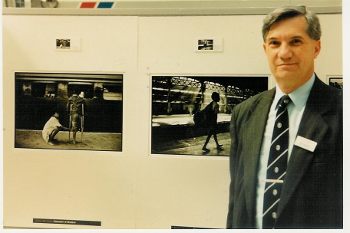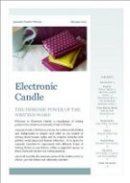In 1991, having returned from a year long trip backpacking around the world, I paid my first subscription to Amnesty International. My short spell volunteering on an Aboriginal reserve and a Nepali village coupled with the indelible images from South-East Asia and numerous trips to the Indian subcontinent, cemented my adolescent belief in the role of the complex socio-political dimensions dictating peoples’ lives. As I read, discussed and listened to opinions about human rights issues, I was both astonished at the lack of awareness and dismayed at the level of cynicism and indifference. Attitudes towards the death penalty, the blind acceptance of the fate of servants, the patronising mantra ‘even though they’re poor, they’re happy,’ and the idea that bullying is character building… (and much more) left me feeling exasperated. In an era of rising consumerism where status was paramount, Amnesty was one of the few organisations campaigning on behalf of those without a voice, without the means or without moral support to overturn their injustice.
Over the years, my level of involvement with Amnesty has varied, dictated by time as jobs and courses have taken me around the country. However, recently, I joined a local Amnesty group and, coincidentally simply out of curiosity, attended a local creative writing course – a world away from my training in science and healthcare professions. One course became three, led by an exceptionally enthusiastic tutor, Linda Spurr, and attended by an equally enthusiastic group of novice writers. Without fail, each week we were plunged into an evening of laughter and debate as we shared and discussed the products of our written assignments. Our end of year panto was truly something to behold… In 2008, the two interests dovetailed and I dreamt up what has now become Amnesty Creative Writers.
Over the years, writing has become my pause button in an otherwise frenzied world. It enables me to research, reflect and distil the issues that disturb, confuse or even amuse me. Events such as the opening ceremony of the Beijing Olympics and the continuing devastating effects of oil exploration in the Niger Delta have provided me with inspiration to pen a few poems. Listening to and reading the works of writers, lawyers and human rights activists such a Philippe Sands at an Amnesty event coupled with his piece in Vanity Fair and John Kampfner’s book ‘Freedom for Sale’ both struck a chord, setting out the complex issues of human rights within the context of society and politics. History demonstrates that human rights abuses, whether the incomprehensible abuse at Abu Ghraib or in its seemingly innocuous form of erosion of civil liberties or bullying, are perpetuated by groups within societies and a product of complicity.
So, writing is the method I choose to try and make sense of a world which seemingly follows without thought. It’s my way of grappling with the competing points of view in a world of competing interests and trying to understand the most complex of creatures: Us.
It’s a huge pleasure to meet with Amnesty members to listen to their writing and discuss the issues that prompted each piece. Sharing our writing with a wider audience in schools and at Amnesty events has received a welcome response and we hope to continue supporting Amnesty events and campaigns. Anyone who is full of ideas and voluntarily runs a group is well aware of the frenzied nature of the beast, siphoning time at the most inopportune moments. Liaising, cajoling, convincing, tweeting, waiting for responses to unanswered emails, creating posters, pamphlets and websites, have inevitably detracted time from my own writing. As our membership grows with enthusiastic, ideas-filled Amnesty members and responsibilities delegated, regularly finding time to pick up my pen and pause will soon be a reality.
Thanks to all those who’ve contributed to and supported the group – you know who you are…
 |
 |
 |
 |





